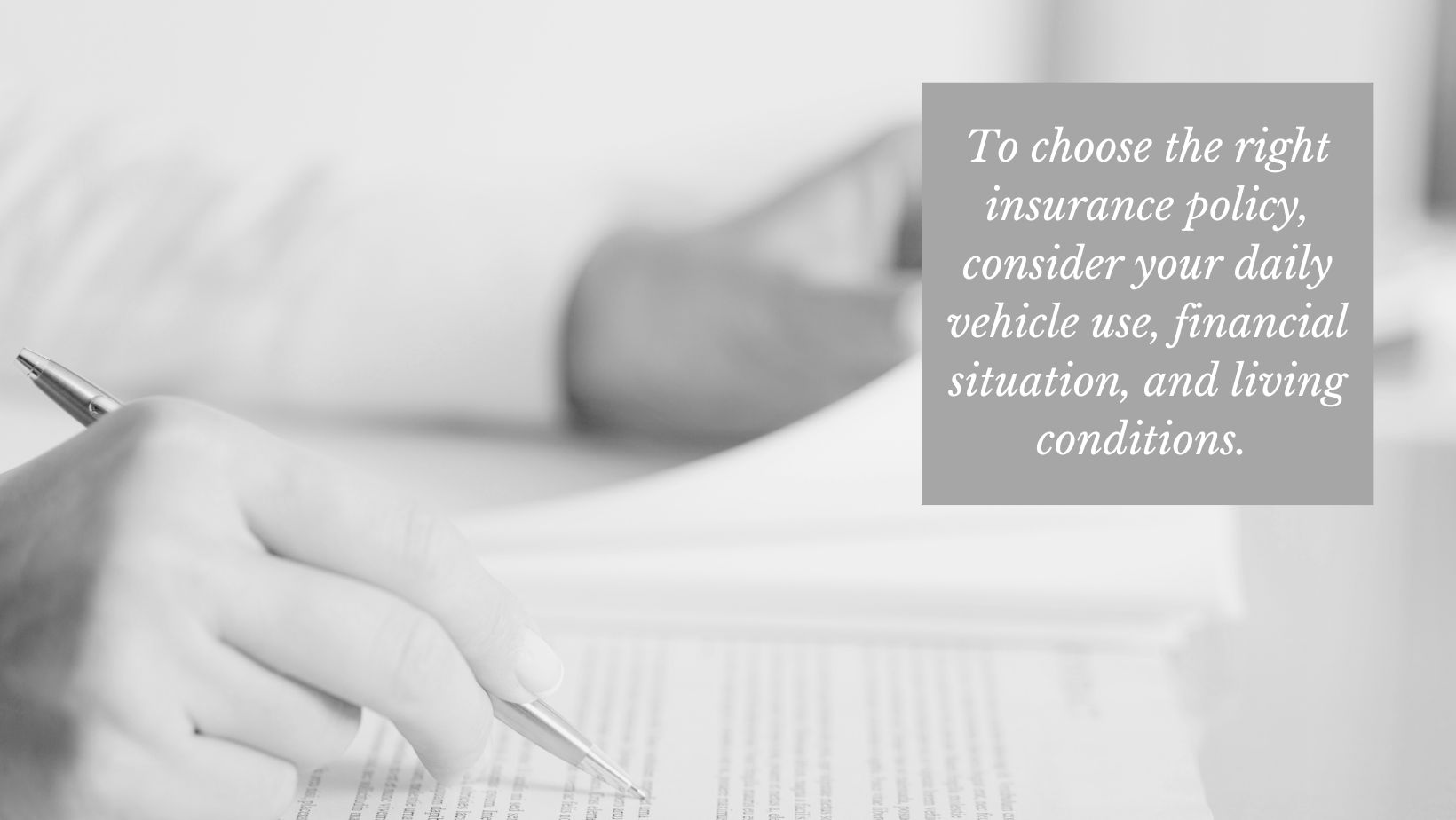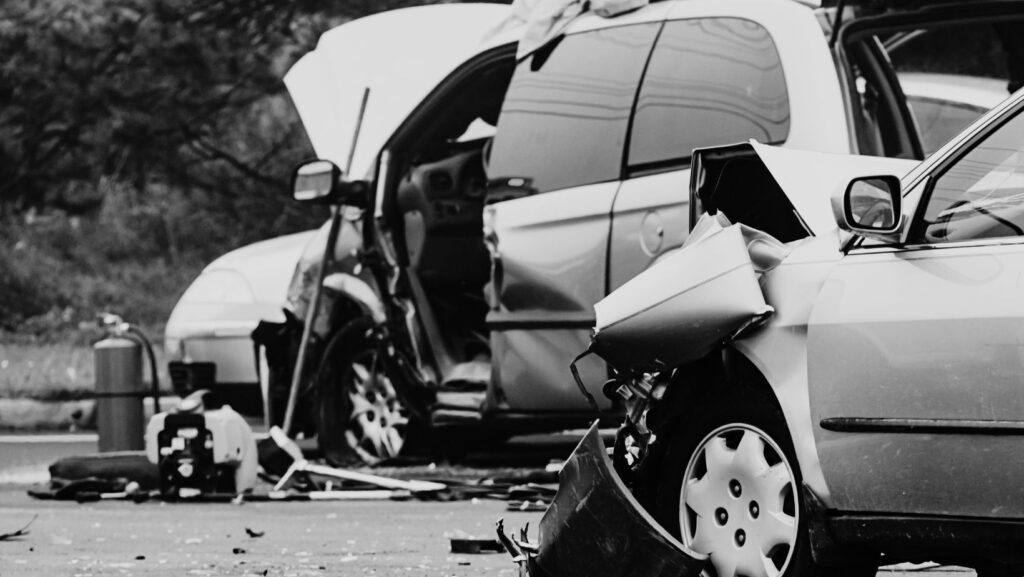Choosing the right auto insurance policy is trickier than it might seem at first. While we all love a good deal, how cheap is too cheap for auto insurance? Even if you go with a more expensive option, how can you be sure you’re covered for all possible scenarios?
In the intentionally obscure insurance industry where “full coverage” is often misleadingly touted, it’s crucial to understand what you’re signing up for. As a personal injury attorney, it’s always painful when I meet victims with an auto policy that won’t cover their financial obligations after an accident. By following the best practices in this article, you should be able to get auto insurance that aligns with your needs and helps ensure you won’t be hung out to dry in the event of an accident.
What Is Auto Liability Insurance?
Auto liability insurance is a mandatory coverage that helps you cover costs if you’re legally responsible for an accident that injures someone or damages their property. It consists of two main types:
- Bodily Injury Liability (BI): This type of coverage pays for costs related to another person’s injuries if you are found at fault in an accident. It covers medical expenses, lost wages, and pain and suffering.
- Property Damage Liability (PD): This type of coverage helps pay for damage you cause to another person’s property, typically their vehicle, but can also include fences and buildings.
What Are Coverage Limits?
Coverage limits determine the maximum amount your insurer will pay for a covered liability insurance claim. In New Mexico, the legal minimum is $25,000 per person, $50,000 per accident for bodily injury, and $10,000 for property damage. However, opting for higher limits can safeguard your assets better and help ensure there isn’t a coverage gap, ensuring that you are adequately protected in the event of a serious accident.
Do You Need Uninsured/Underinsured Motorist Coverage?
Uninsured Motorist (UM) or Underinsured Motorist (UIM) coverage is essential for protecting yourself against drivers who lack adequate insurance. If you’re involved in an accident where the other driver is at fault and does not have enough insurance, UM/UIM can cover your medical bills and car repairs that the other party’s insurance cannot.
It’s important to remember that this type of insurance helps even when you’re not driving. If you or your child is hit by a vehicle and the driver doesn’t have insurance, UM/UIM policies will often cover this scenario and pay your medical bills.
Always consider opting for coverage that matches or exceeds your liability limits to ensure comprehensive protection. Without this kind of coverage, or without enough of it, you’ll have to hope the other party has enough money to cover their damages. If not, you’ll have to pay for your medical and property expenses out of pocket.
What is Medical Payments Coverage?
Medical Payments Coverage, or MedPay, provides for the medical expenses you and your passengers incurred from an accident, regardless of who is at fault. It can cover immediate costs like ambulance fees, hospital visits, and necessary surgeries—typically up to a chosen limit. Having MedPay can be a lifeline in managing high deductibles or out-of-pocket medical expenses early on after an accident.
These coverages are critical in filling the gaps left by standard liability insurance. Understanding and selecting the right options can help shield you from significant financial hardship following an accident. Always review these terms carefully when evaluating an insurance policy to ensure you have adequate protection.
Critical Tips for Choosing the Right Insurance Policy
To choose the right insurance policy, consider your daily vehicle use, financial situation, and living conditions. Consider questions like: How much do I drive? What is my vehicle’s value? Could I afford major repairs or medical expenses out-of-pocket? Higher limits may be justified if you have a more expensive vehicle or drive frequently. In New Mexico, the average driver covers about 19,000 miles in a year, so if you’re over that number, it’s a good idea to consider upping your coverage. Thinking through these factors will help you determine the levels of coverage that best fit your needs, ensuring you’re neither underinsured nor overpaying for unnecessary coverage.
Understanding and Reviewing Policy Exclusions
Reading and understanding the exclusions in your insurance policy is crucial. Insurance exclusions are specific conditions or circumstances listed in an insurance policy that are not covered by the insurer, limiting the scope of the policy’s coverage. Cheaper policies might save you money upfront but often include numerous exclusions limiting coverage, such as not covering accidents involving family members driving your vehicle or certain types of damages. For example, your insurance may not cover damage to your vehicle due to a natural disaster or the theft of items from your car if it is broken into. Knowing what your insurance does not cover is as important as knowing what it covers to avoid unexpected coverage gaps.

How to Deal with Insurance Companies
Filing an insurance claim can be daunting, especially if the accident isn’t your fault. Here are some tips to help the process run more smoothly:
-
- Report the accident promptly: Insurance companies generally require that you report any accident involving your vehicle as soon as possible.
- Keep detailed records: Document everything related to the accident, including photos of the scene, a copy of the police report, and detailed notes of any conversations with insurance adjusters.
- Be cautious with your statements: When discussing the accident with insurance adjusters, be honest but cautious about admitting fault before all facts are reviewed.
- Understand your policy: Knowing the specifics of your policy, including deductibles and coverage limits, helps you understand what you can realistically expect from your claim.
- Do not accept an initial offer from the insurance company: If you’ve been injured, it’s important to not accept the first offer from an insurance company. It’s often a low-ball offer designed to limit their liability, and it may not cover your full needs. If you find yourself in this situation, it’s important to do the next step.
- Seek legal advice: If you feel overwhelmed or believe you are not being fairly treated, consulting with a car accident attorney can provide additional support and ensure your rights are protected.
These strategies can help you navigate the often frustrating interactions with insurance companies after an accident, ensuring you receive the compensation and coverage you deserve. Insurance companies may not always have your best interests at heart, so it’s crucial to be informed and prepared when dealing with them.
How Kane Helps with Auto Insurance Claims
Navigating auto insurance claims and understanding your coverage can be complex, but you don’t have to do it alone. If you or a loved one has been in an accident and are struggling with your insurance company, our experience can be a key factor in successfully resolving your case. We can provide the guidance and support you need to ensure your rights are protected and you receive the compensation you deserve. Don’t hesitate to reach out for a free, no-obligation consultation to discuss your specific situation and get expert advice tailored to your needs. Contact us today to take the first step towards confidently resolving your insurance issues.
